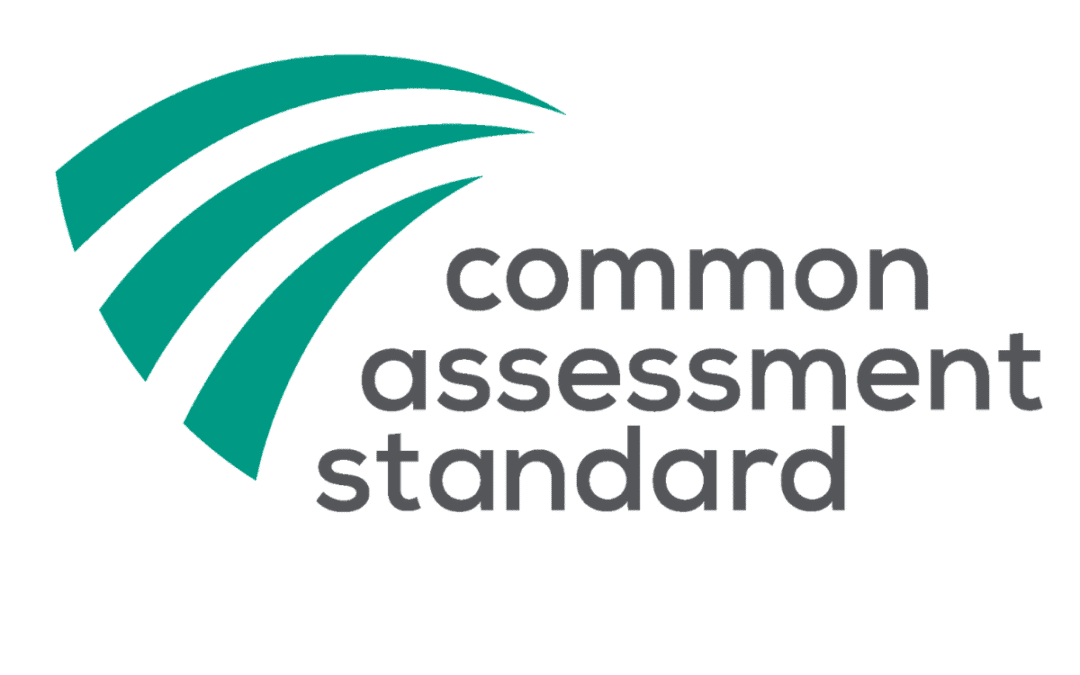
by Clair Mooney | 3 Jun, 2021 | Main News Feed
Osborne is the latest Build UK member to adopt the Common Assessment Standard for its pre‐qualification requirements. Osborne joins a growing list of major contractors and clients which are specifying the Common Assessment Standard, meaning that members of the supply chain can obtain certification from any one of three Recognised Assessment Bodies ‐ Achilles, CHAS or Constructionline ‐ in order to tender for work with them.
The Common Assessment Standard, which is endorsed by the CLC, has two levels of certification ‐ desktop and site‐based ‐ and companies should apply for the appropriate level dependent upon their trade, size, and the requirements of their clients.
You can access the FIS Contractual and Legal Toolkit here.

by Clair Mooney | 2 Jun, 2021 | Main News Feed, Technical
BEIS has issued an update to “Using the UKCA marking” guidance last issued on 31 December 2020. More information has been added on when a you can self-declare along with updates to the ‘Relevant UK and EU legislation” to remove inaccurate legislation.
The updated guidance can be viewed here.
While this is general guidance there are several references to separate guidance being available for construction products which should be read. These link back to guidance issued in September 2020 dealing with the two UK Statutory Instruments – Construction Products (Amendment etc.) (EU Exit) Regulations 2019 and 2020.
Notable differences in the text are as follows:
On page 2, Selling goods in Great Britain
The following has been added:
‘The circumstances in which you can use self-declaration of conformity for UKCA marking are the same as for CE marking. If you were able to self-declare conformity for the CE marking, you will be able to do the same for the UKCA marking.
Check the list of areas where self-declaration is permitted.’
On page 3, When to use the UKCA marking
The following has been added:
‘This does not apply to existing stock, for example if your good was fully manufactured, CE marked and ready to be placed on the market before 1 January 2021. In these cases, your good can still be sold in Great Britain with a CE marking even if covered by a certificate of conformity issued by a UK body before 1st January 2021. These goods will need to be placed on the market before 31 December 2021.
On page 3, How to use UKCA marking, Placing the UKCA marking, General Rules
The following has been added:
A product may have additional markings and marks, as long as they:
-
- Fulfil a different function from that of the UKCA marking
- Are not likely to cause confusion with the UKCA marking
- Do not reduce the legibility and visibility of the UKCA marking.
On page 4, Rules for using the UKCA image:
The following has been added:
‘The UKCA marking can take different forms (for example, the colour does not have to be solid), as long as it remains visible, legible and maintains the required proportions.’
On page 5, UK Declaration of Conformity
Please note that construction products manufacturers have a Declaration of Performance so CPA recommends that this also applies to DoPs
The following sentence has been added:
‘We recommend that manufacturers have a separate UK Declaration of Conformity to their EU Declaration of Conformity.’
On pages 6-7 there is a new table titled ‘Legislative areas where self-declaration of conformity for UKCA marking is permitted’.
This lists the CPR with a product scope of AVCP System 4.
On page 8, there is a new item ‘Transitional measures relating to the UKCA marking.’
The last sentence categorically states that these transitional arrangements do not apply to construction products.
The following guidance issued in the original document “Using the UKCA mark from 1 January 2021” dated 1 September 2020 now excludes the following text:
Future use of markings in the UK
From 1 January 2022, the CE marking will not be recognised in Great Britain for areas covered by this guidance and the UKCA marking. However, a product bearing the CE marking would still be valid for sale in the UK so long as it was also UKCA marked and complied with the relevant UK rules.

by Clair Mooney | 2 Jun, 2021 | Main News Feed
The Department for Health has launched a new toolkit for employers to help ensure employees get reliable information about COVID-19 vaccines. Several major businesses, including Asda, IKEA and Santander, have already pledged to promote vaccine uptake with their employees and to allow flexibility for staff to get vaccinated during work hours.
Access the toolkit to get materials for you to run internal awareness campaigns promoting the benefits of vaccination, including key messages, posters, fact sheets and videos providing accurate up to date information. The government is calling on as many employers as possible to join the campaign and support the efforts to continue to bring the nation out of lockdown.

by Clair Mooney | 27 May, 2021 | Main News Feed
As part of a new incentive scheme, employers in England can claim £1,000 for every T-Level student they host on a high-quality industry placement https://www.gov.uk/government/news/cash-boost-for-t-levels.
The T Level employer incentive fund recognises the impact of the pandemic on many businesses, and has been designed to help cover financial constraints employers may face as a barrier to hosting placements in the short term.
Employers will be able to claim £1,000 for up to 20 students they host on a 45 day (315 hour) industry placement, from now until July 2022. The incentive offers businesses an excellent opportunity to tap into the emerging talent pipeline, whilst supporting the skilled workforce of the future.
Those interested in accessing the incentive payments and offering T-Level industry placements should contact: 08000 150 600 (choose option 4) or fill out an industry placement contact form online: Next steps | T Levels
T Levels uniquely combine classroom study with industry placements, generating the skilled workforce that businesses need for the future.
This Employer Guide helps businesses understand how to host an industry placement. This includes details on what is expected of employers during the placement.

by Clair Mooney | 27 May, 2021 | Main News Feed
The Small Business Commissioner, Philip King, joined a meeting with Build UK members (including FIS CEO Iain McIlwee) earlier this month to discuss the changes to the Prompt Payment Code (PPC). PPC is a voluntary code of practice for businesses, administered by the Office of the Small Business Commissioner (SBC) on behalf of BEIS. It was established in December 2008 and sets standards for payment practices between organisations of any size and their suppliers. Being a signatory is often a requirement (or at least a consideration) for projects procured through Government.
As it stands, large businesses that have submitted data to Government’s Payment Practices Portal revealing payment of less than 90% of invoices within 60 days are suspended from the Code, until they achieve at least that percentage. If a suspended signatory fails to engage with the PPC administrators, or compliance is not achieved within a reasonable timescale, the signatory risks being permanently removed from the Code.
Key changes include the new requirement for signatories to pay 95% of invoices from businesses with fewer than 50 employees within 30 days from 1 July 2021. The meeting looked at definitions of employment (in this case it is referring to PAYE employment and not taking into account self-employed or gang/agency workers) and the challenge of identifying suppliers. It was recognised that signatories of the code can use the Common Assessment Standard to identify suppliers with fewer than 50 employees. Question 10 asks ‘Are you a Micro, a Small or a Medium‐Sized Enterprise?’ and any suppliers that state they are ‘Micro’ or ‘Small’ have fewer than 50 employees, in accordance with the EC definitions used within the standard, and this information is independently verified by a certification body on an annual basis.
Commenting on the meeting, FIS CEO stated
“It was good to hear that the PPC is starting to ratchet in to focus on flow of monies through the supply chain and to hear Philip signing off in such a positive way. In the meeting we did take the opportunity to reinforce that late payment and fair payment are linked, but the subject is more complex. We look forward to continuing this discussion with the new Commissioner, Liz Barclay, when she takes over in the summer”.
Build UK has produced a summary of the key points which answers the range of queries raised by members.

by Clair Mooney | 21 May, 2021 | Main News Feed
As an employer it will be your responsibility to check that an individual has a right to work (this applies to both employed and contracted workers). You could face a civil penalty if you employ an illegal worker and have not carried out a correct right to work check. FIS has updated its Employment & Workforce Management Toolkit to give you access to the most up to date information. This includes access to a webinar, run in collaboration with the Association of Labour Providers and Stronger Together to help FIS members understand the responsibility and steps that must be taken to discharge this responsibility.
At the same time, it is vital that you consider Modern Slavery. A recent report by the Association of Labour Providers reflects that, despite Right to Work Checks being more onerous, the likely shortages and background means that new immigration rules are likely to have an adverse impact on Modern Slavery. Modern Slavery and Right to Work should not be confused, someone can have the Right to Work, but still be operating under coercion.
You can access the updated FIS Employment and Workforce Management Toolkit here
You can access the updated FIS Modern Slavery Toolkit here
You can access a recent recording of our webinar on Modern Slavery and Right to Work Checks here






